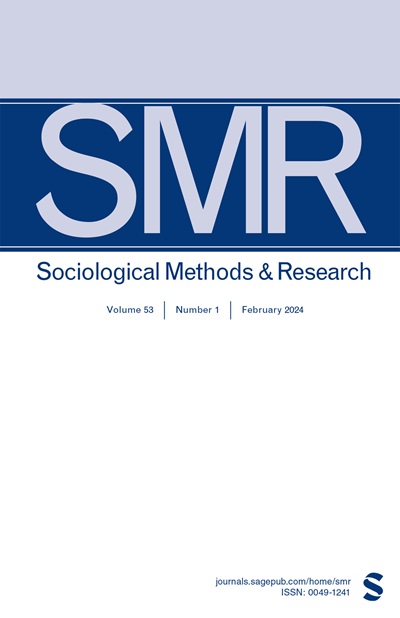当公司是人:代理人谈话与组织行动者的发展,1890–1934
IF 6.5
2区 社会学
Q1 SOCIAL SCIENCES, MATHEMATICAL METHODS
引用次数: 0
摘要
组织理论研究将组织是“行动者”这一概念作为一个关键前提。组织行动者或代理在一定程度上取决于外部受众对组织的看法。换句话说,组织代理要求外部受众将组织作为代理。然而,很少有实证研究试图衡量这些归因:受众什么时候认为组织是代理人,这些归因是如何随着时间的推移而变化的?在这篇文章中,我建议学者们可以跨计算方法进行三角测量,包括命名实体识别、依赖解析、主题模型和词典方法,以分析文本中代理的归因,我称之为“代理谈话”。“我通过分析在二十世纪之交组织发展的关键时期,商业组织是如何作为代理人进行讨论的,来证明这种方法的实用性。通过分析《华尔街日报》和《纽约时报》这两家全国性主流报纸的文章,我研究了日常商业话语中的代理人谈话。我发现,在20世纪初,代理人的谈话普遍增加,因为组织在文本中被描绘成活跃的主体,并被拟人化为发言人。此外,我发现这种话语集中在社会和法律语义语境中:特别是与劳工、监管和铁路有关的语境。最后,我展示了随着时间的推移,这种修辞的不均衡发展,因为不同语义领域的组织都被拟人化为说话者。总的来说,这些结果表明,话语的衡量标准可以为了解受众如何以及何时赋予组织角色提供一个窗口。本文章由计算机程序翻译,如有差异,请以英文原文为准。
When Corporations Are People: Agent Talk and the Development of Organizational Actorhood, 1890–1934
Research in organizational theory takes as a key premise the notion that organizations are “actors.” Organizational actorhood, or agency, depends, in part, on how external audiences perceive organizations. In other words, organizational agency requires that external audiences take organizations to be agents. Yet little empirical research has attempted to measure these attributions: when do audiences assume that organizations are agents and how have these attributions changed over time? In this article, I suggest that scholars can triangulate across computational methods—including named entity recognition, dependency parsing, topic models, and dictionary methods—to analyze attributions of agency in text, discourse that I term “agent talk.” I demonstrate the utility of this approach by analyzing how business organizations were discussed as agents during a key period of organizational development, the turn of the twentieth century. Analyzing articles from two of the leading national newspapers, the Wall Street Journal and New York Times, I examine agent talk in everyday business discourse. I find that agent talk generally increased over the early twentieth century, as organizations were depicted as active subjects in text and personified as speakers. Moreover, I find that this discourse was concentrated in social and legal semantic contexts: in particular, contexts relating to labor, regulation, and railroads. Finally, I show the uneven growth of this rhetoric over time, as organizations across different semantic arenas were personified as speakers. Overall, these results show how measures of discourse can provide a window into how and when audiences endow organizations with actorhood.
求助全文
通过发布文献求助,成功后即可免费获取论文全文。
去求助
来源期刊

Sociological Methods & Research
Multiple-
CiteScore
16.30
自引率
3.20%
发文量
40
期刊介绍:
Sociological Methods & Research is a quarterly journal devoted to sociology as a cumulative empirical science. The objectives of SMR are multiple, but emphasis is placed on articles that advance the understanding of the field through systematic presentations that clarify methodological problems and assist in ordering the known facts in an area. Review articles will be published, particularly those that emphasize a critical analysis of the status of the arts, but original presentations that are broadly based and provide new research will also be published. Intrinsically, SMR is viewed as substantive journal but one that is highly focused on the assessment of the scientific status of sociology. The scope is broad and flexible, and authors are invited to correspond with the editors about the appropriateness of their articles.
 求助内容:
求助内容: 应助结果提醒方式:
应助结果提醒方式:


